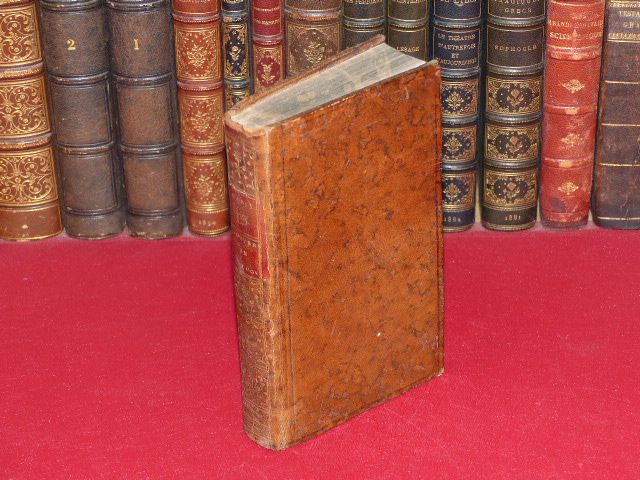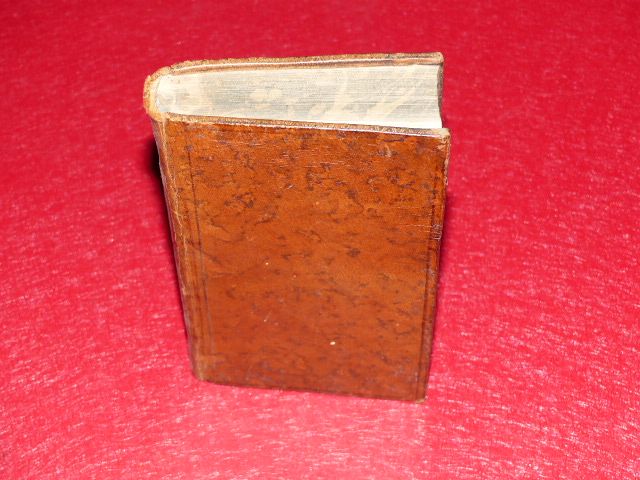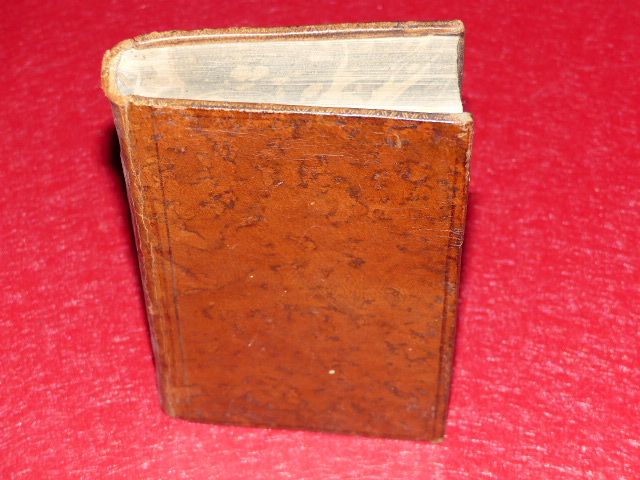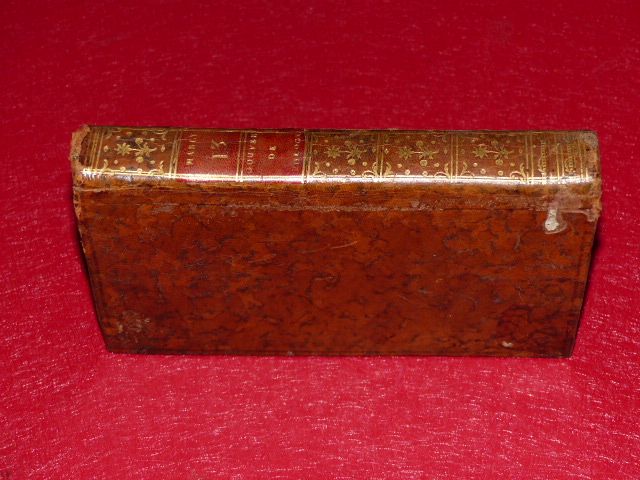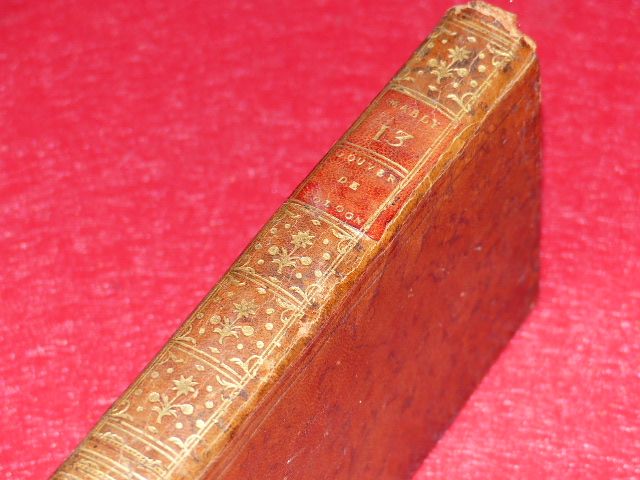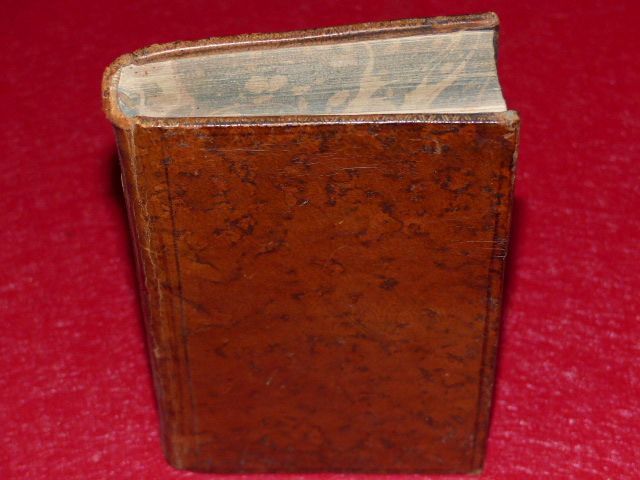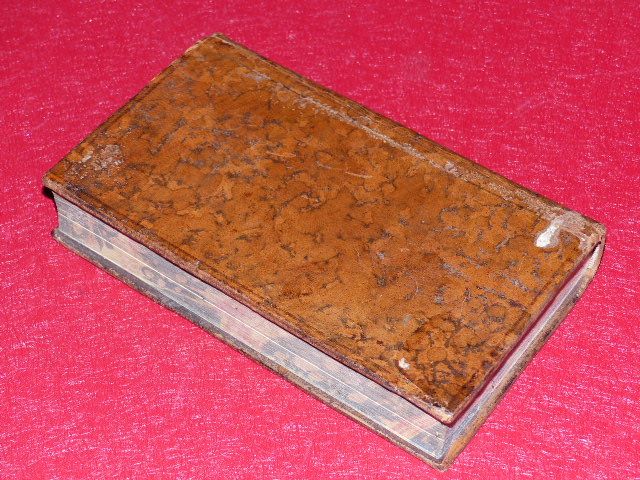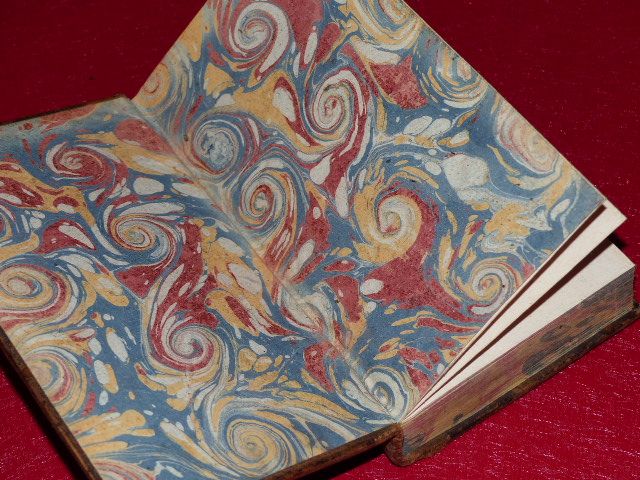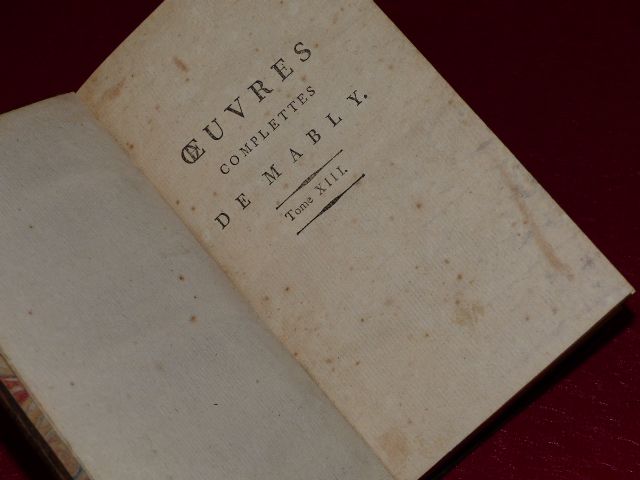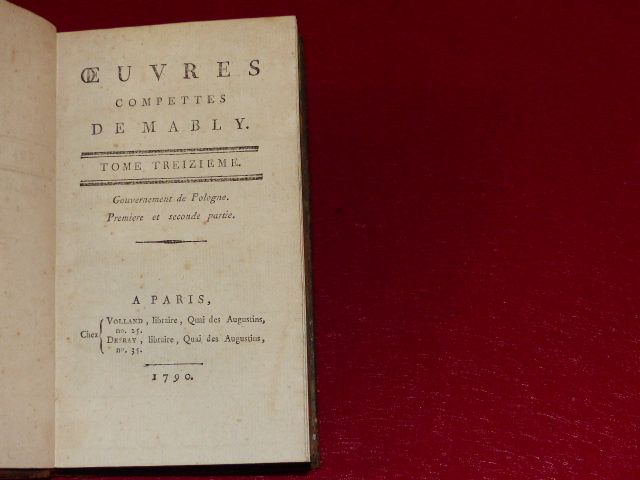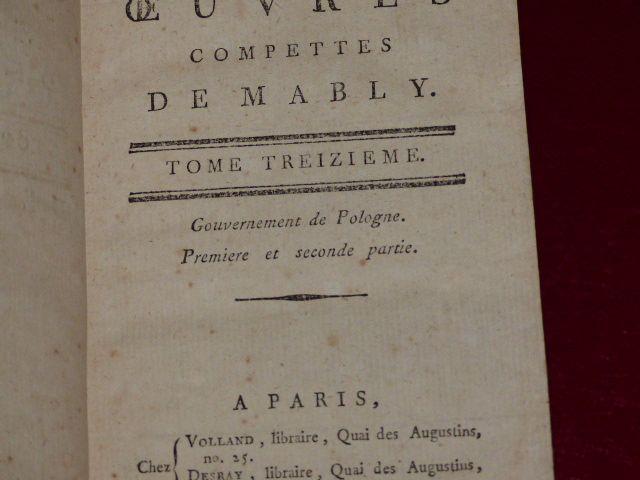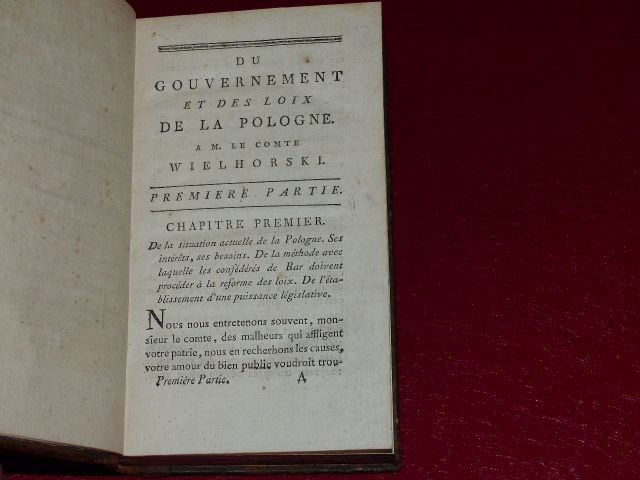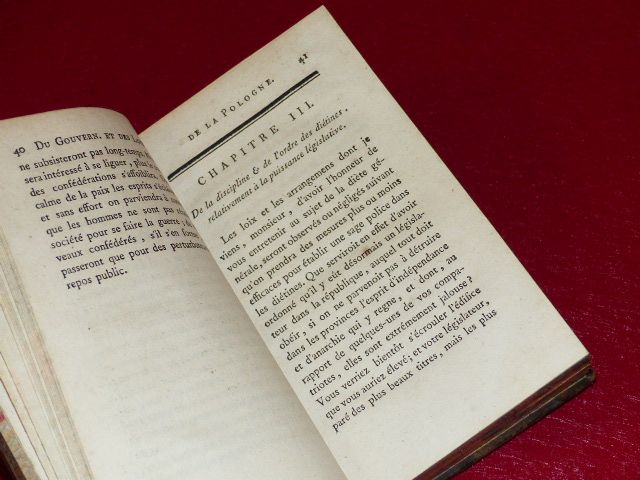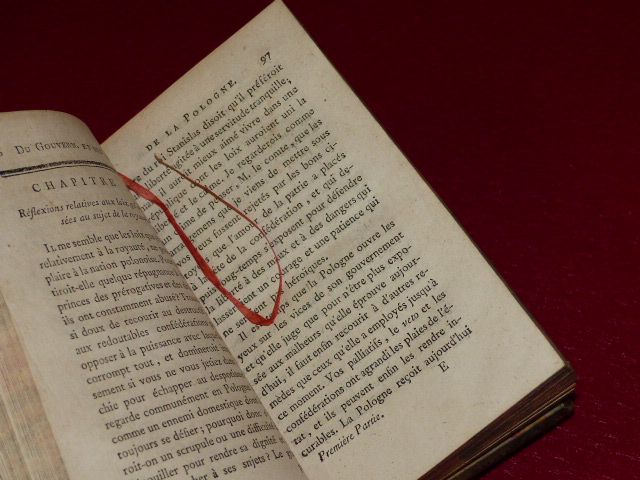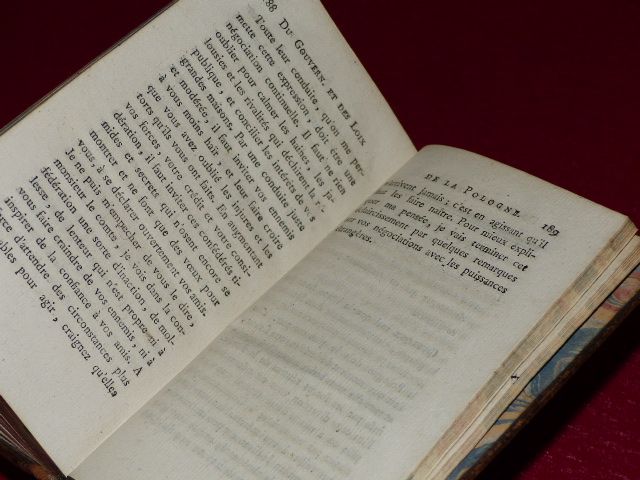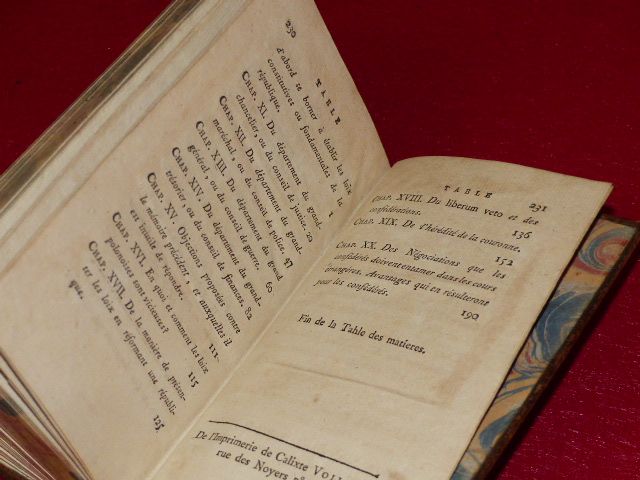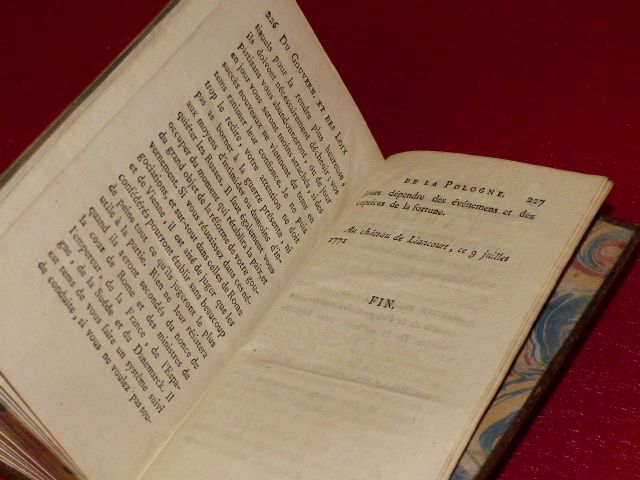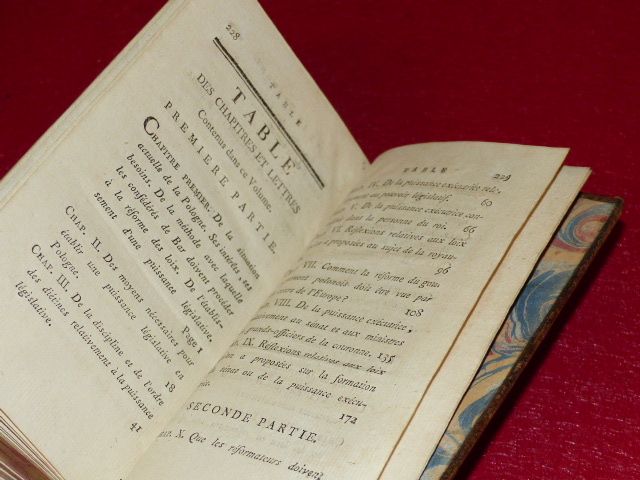ABBE DE MABLY
1709-1785
Gabriel Bonnot de Mably
Philosopher, politician, writer
Abbot Gabriel Bonnot de Mably, born in Grenoble on Mars 14, 1709 and died in Paris on April 2, 1785,
is a French philosopher.
Biography
Coming from a family of parliamentary nobility, Father Mably is the brother of Condillac, also a philosopher.
Mably denounces "legal despotism" and also criticizes the English political system, which he believes subordinates the legislative power to the executive power.
He was a canon of the abbey church of Île Barbe.
Doctrine
A precursor of utopian socialism and the Revolution, he engaged in a moral critique of Ancien Régime society, exposing that inequality of conditions and private property were the cause of society's ills.
He sees in common property and equality less a means of achieving happiness than a means
to achieve virtue (Observations on the history of France, 1765; On legislation or Principles of laws, 1776).
He admires ancient societies, models of frugality and virtue, such as Sparta and chooses the virtuous and ascetic Phocion as a model of his virtuous society (Conversations of Phocion on the relationship between morality and politics, 1763).
-
On the government and laws of Poland
The first edition of this text is from 1781 (in London, sn)
-
Government of Poland
First and second part
(Full text)
This text forms volume 13
from the Edition of the Complete Works of Mably
-
Paris, chez Volland & Desrays, 1790
2 Parts in 1 volume In-12, 183 and 231pp.
-
The question of the Republic and republicanism in the modern era has been at the center of numerous works for around thirty years. Current questions about what is commonly called the “crisis of democracy”
are undoubtedly not unrelated to this renewed interest.
In the 18th century, the Republic and republicanism were not just “traditions” originating from ancient philosophy or that of Renaissance Italy. There were a number of republican states in Europe whose practical experience helped to form the political thought of the Enlightenment. Among these, Poland is the subject of an important debate on the question
of the modernity of republicanism.
The two most important contributions to this debate were those of Jean-Jacques Rousseau and Gabriel Bonnot de Mably, both solicited by the envoys of the Polish “patriots” in France in order to give their opinion on the reforms.
necessary to save the Polish republic.
If the text of Rousseau's Considerations on the Government of Poland (1771) is well known, On the Government
and Mably's Laws of Poland (1770-1771) is much less so. However, Rousseau's text is largely unintelligible without knowledge of Mably's to which he responds. These two texts are also part of a much broader discussion which began at the beginning of the 1760s and ended around 1780 and which made the history of Poland an important element
of Enlightenment political reflection.
Gabriel Bonnot de Mably (1709-1785) was one of the most important philosophers of the 18th century. Considered in his time as the equal of Rousseau, he exerted great influence among the thinkers of the Enlightenment and during the French Revolution. Critic of “economism” and the “legal despotism” of the Physiocrats, thinker of ancient and modern republicanism, theorist of relations between peoples, defender of “moral politics”, Mably constructs a multifaceted philosophical work to be rediscovered to rethink politics at the start of the 21st century.
(Marc Belissa)
-
Period binding, speckled brown leather, decorated smooth spine, 2 title labels and red leather volume number,
titling, fleurons and golden fillets, three marbled slices
(Good copy, fair used condition, correctly preserved, solid and clean binding, various defects usual for old works, marks, various usual wear or friction on edges, jaws, flats, caps, slots on jaws,
various leather losses, on caps, corners, edges, etc., good appearance, fairly good corners, various leather gaps on the surface, sometimes significant, body of work holding together perfectly)
see visuals...
Good copy,
clean and fresh internally,
few freckles or light spots inside
Sold in as described condition, as found...
Quite rare work
-
As always, combined shipping costs in the event of the purchase of several books...
